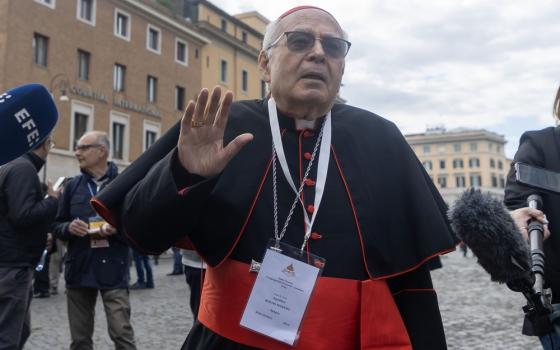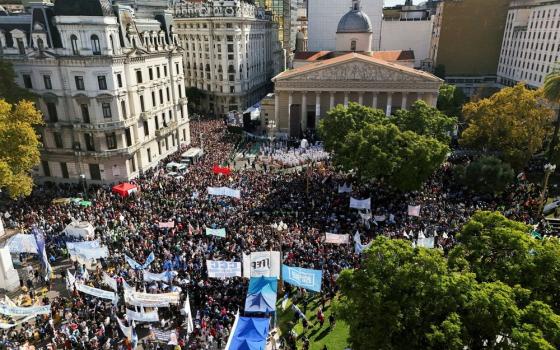If you have lived 50 or more years of your life in the 20th century, then you probably remember when Catholicism was a religion of the supernatural. So much of the faith was concerned with "the other side," where the souls of the faithful were united with God and where we anxiously hoped our souls might find rest someday, enjoying the beatific vision. And there was a constant interchange between these two worlds, the natural and the supernatural. We sent prayers and sacrifices from our side on behalf of those suffering in purgatory on the other side. We could earn indulgences for them and for us, the precise value of which was somehow scrupulously calculated over there.
We were protected by guardian angels, supported by our patron saints, beloved especially by our Blessed Mother, and promised instant entrance into heaven by faithfully fulfilling the conditions of the nine First Fridays. We read or heard about holy interventions from the other side into our world in the form of apparitions and stigmata and healing miracles, especially miracles. We had blessed medals and blessed candles and blessed holy cards.
I grew up in that world of faith and soaked it all in -- but not without some question and doubt. Though our parents never outwardly voiced questions about any of these beliefs or holy practices, I still vividly remember our mother's response when a pious person gave my brother a little bottle of water reportedly used in washing the deceased body of the much-venerated stigmatic Marie Rose Ferron of Woonsocket, R.I. We were supposed to spread it around the house or put a few drops daily in our food. Without a moment's hesitation, our mom told my brother, "Take that in the bathroom right now, pour it in the toilet and flush!" Her reaction seemed to me so full of common sense that I laughed. It was one of many small events that set me on a road of what I believe is a healthy skepticism.
Now we live in a new age of Catholicism, but there remain survivors of that earlier period. Miracles are still required to get a saintly person canonized. Novenas and pilgrimages have some popularity. Relics and ornate reliquaries and gold vestment and chalices are still favored by those clergy and laity who have been trying to resurrect 20th-century Catholicism. And still most Catholics get a taste of the old supernatural culture when they attend a Mass for the deceased. That's where the distance between our side and the other side can seem for the moment extremely thin.
I don't mean to ridicule the old ways, but I've come, like many Catholics, to see that much of the old spirituality was a combination of wishful thinking and superstition.
And so, for the most part, 21st-century Catholicism is becoming an earthbound religion. We are to feed the poor and comfort the afflicted. We are to work diligently on behalf of social justice, not just locally but globally. We are to see the health of this planet and its creatures as our primary responsibility. We are to tend it, heal it, love it and gradually transform it into the kingdom of God. Yes, that makes sense -- up to a point. But isn't there more beyond all this? Do we have souls? Is there another side?
I fear many Catholics and other Christians, while remaining active in their religion, have given up a belief in anything beyond this life. I fear too that the next generations will move further and further away from the supernatural, regarding it and everything connected with it as mere metaphor. The solution is certainly not to retreat to the beliefs of old. Something new and challenging is required to capture for a new age the overwhelming yet mysterious reality of what is truly the "other side."






